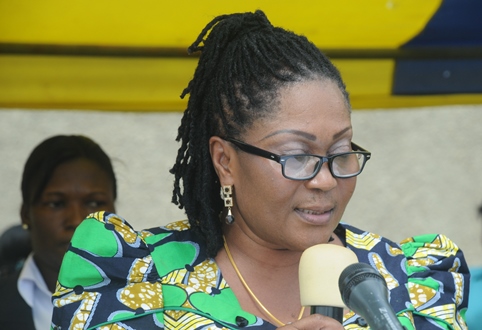[ad_1]

First Lady Dr Mrs Lordina Mahama on Thursday pledged to impress on the government to allocate adequate resources for the provision of comprehensive sexual reproductive health services for adolescents.
This, she said, would enable African governments to initiate and implement key actions, towards reversing the negative HIV and AIDS trend among adolescents.
“For far too long, this area of intervention has suffered neglect by partners”, she said.
Mrs Mahama, who was speaking at the launch of the United Continental “All-in” adolescent HIV campaign as part of the three-day Seventh Africa Conference on Sexual Health and Rights, urged her colleagues to take advantage of their unique positions in the society to implement the standards in the fight.
The programme was also attended by First Ladies from Kenya, Chad, Mali, Ethiopia, Sierra Leone, the Ivory Coast and Guinea Bissau.
The “All-in” campaign is focused on engaging, mobilizing and empowering adolescents as leaders and actors of social change and improving data collection to be better informed.
It would also encourage innovative approaches to reach adolescents with essential HIV services adapted to their needs and place adolescent HIV firmly on the political agenda to spur concrete action and mobilise resources.
The First Lady expressed dissatisfaction at the slow reduction figures in new infections among adolescents adding that the girls were the most affected.
“Yet data specific to the adolescent age groups, 10-14 and 15-19 is almost non-existent… And you and I have to do something quickly”, she said.
Mrs Mahama said although AIDS related deaths were declining in most of the age groups the same could not be said of adolescents thus between the ages of 10 and 19 making it the leading cause of death among adolescents in Africa and the second leading cause of deaths among adolescents globally.
She appealed to traditional authorities to lend their support for the fight against the disease particularly among the adolescents throughout the country.
Dr Angela El-Adas, Director General of the Ghana AIDS Commission, said Ghana has been able to reduce new infections by over 56 percent over the years as opposed to the global increasing number of new infections.
She said research indicates that girls between the ages of 15 and 24 had multiple unprotected sex thereby exposing themselves to various risks.
Lack of access to services, she said, contributed immensely to the high prevalence saying “those who are informed make better choices.”
There were messages from other First Ladies pertaining to their countries and steps adopted to curb their concerns.
–
Source: GNA
[ad_2]
